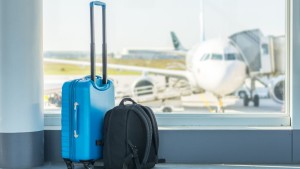Jet lag is not a disease, but it can wreck havoc on the body. The temporary sleep disorder can affect your energy levels, digestive system, productivity, focus and can cause anxiety and insomnia. Whether you often travels across multiple time zones or it will be for the first time, knowing these handy tips for dealing with jet lag may help you make your long-haul flight more enjoyable.
1. Change your sleeping patterns several days before the trip
Skip this point, if you are going on a quick business trip. If you are looking to spend a few days or weeks in a new time zone, consider changing your sleeping patterns a few days before the flight. When flying east, move bedtime earlier – go to bed one hour earlier every night for three to five days. When flying west, move bedtime later – head to bed an hour later every night for three to five days.
2. Set one of your watches to your destination time
This will help you ease the transition across time zones. I suggest wearing two clocks a day before the flight and when you arrive at the destination if it is a business trip. If not, wear the watch set to a local time.
3. To sleep or not to sleep?
Sleeping on the plane can be both harmful and beneficial, depending on the duration of the flight and which direction you fly. If it is nighttime at your destination while you are flying, grab your pillow, pop your eye mask on and enjoy your sleep. If it is a daytime, try to stay awake and distract yourself from falling asleep.
More: 7 Overnight Flight Tips to Help You Wake Up Happy
4. Skip the caffeine and alcohol
Alcohol will not help you fall asleep, and several shots of espresso will not keep you awake. Lemon water can give you an instant burst of energy while a cup of herbal tea will help you drift off quickly and easily. Also, watch what you put in your body. British Airways pilot Helen MacNamara suggests eating Brazil nuts and drinking a glass of milk before bedtime to beat midnight cravings and fall asleep faster.
5. Try to stay awake until your destination’s bedtime
It is really hard to follow this advice, especially if you do not sleep on the plane, but staying awake will help you learn to live according to local time and wake up full of energy the next morning. If you really feel sluggish and sleepy, try taking a nap for 30 minutes or an hour and then go for a walk in the park to keep yourself awake.
6. Stay hydrated
Water is essential, but it is more important during traveling. Flights are dehydrating and dehydration worsens jet lag in the long run. Even if you drink several glasses of water right after your arrival, you will not feel better. Aim to sip plain, cucumber or lemon water during your flight and drink a couple of glasses as soon as you arrive at your destination to fight jet lag, relieve fatigue and keep your energy levels in check.
7. Boost endorphins
I am not going to tell you to exercise to increase your energy levels because I realize that a sleepy and sluggish person is not able to work out. But I suggest you move your body to wake it up. Go for a walk, do a few stretches or squats, or dance to your favorite music, if you are alone in your hotel room. It is also important to do a few exercises on the plane to get your blood pumping, avoid back pain, and boost your endorphins, which are ‘happy’ hormones.
More: 7 Great Ways to Exercise on a Plane Journey
Traveling long distances is fun, but not for those who are prone to get jet lag. Some tourists who travel across multiple time zones say that they have never experienced jet lag. Lucky they are. But if you read this article then you are probably anything like me and you suffer from that looming jet lag, you may need these little pieces of advice. Feel free to share your own ones.







